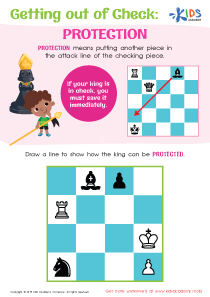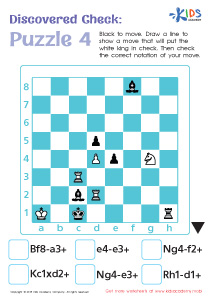Chess knowledge Chess Worksheets for Ages 6-9
3 filtered results
-
From - To
Enhance your child's chess understanding with our engaging "Chess Knowledge Worksheets" designed specifically for ages 6-9. These printable resources help young learners grasp essential chess concepts, including piece movements, basic strategies, and game etiquette. Each worksheet combines colorful illustrations with interactive activities, making learning fun and memorable. Our carefully crafted materials support cognitive development, critical thinking, and problem-solving skills. Whether used in the classroom or at home, these worksheets foster a love for chess while laying the foundation for more advanced play. Equip your child with the knowledge they need to excel on and off the chessboard!
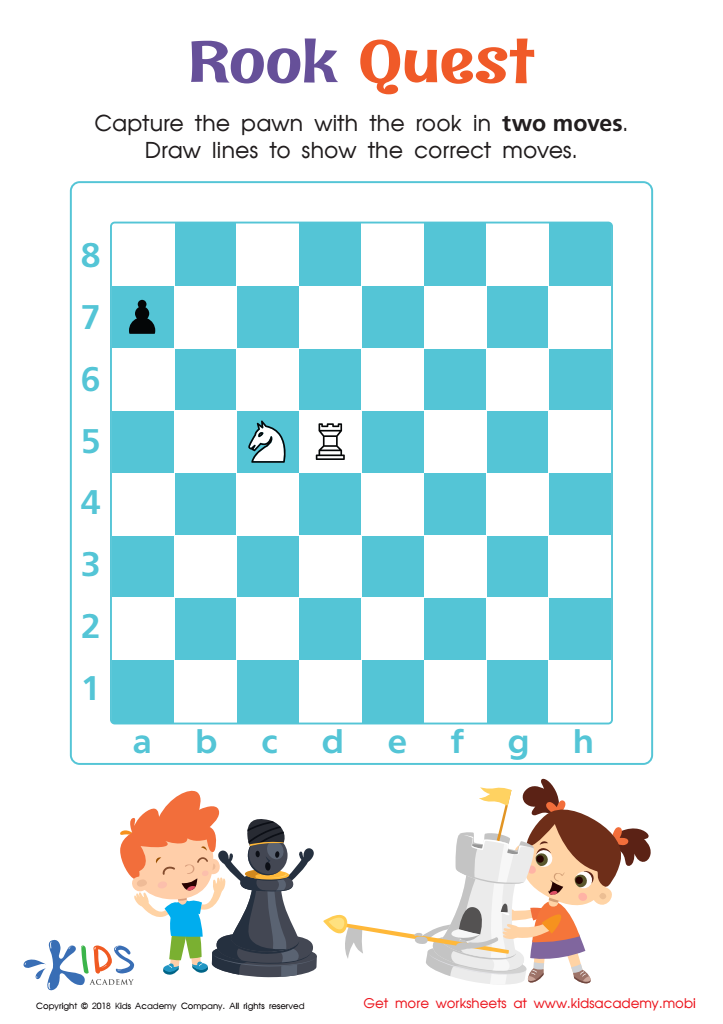

Rook Quest Worksheet
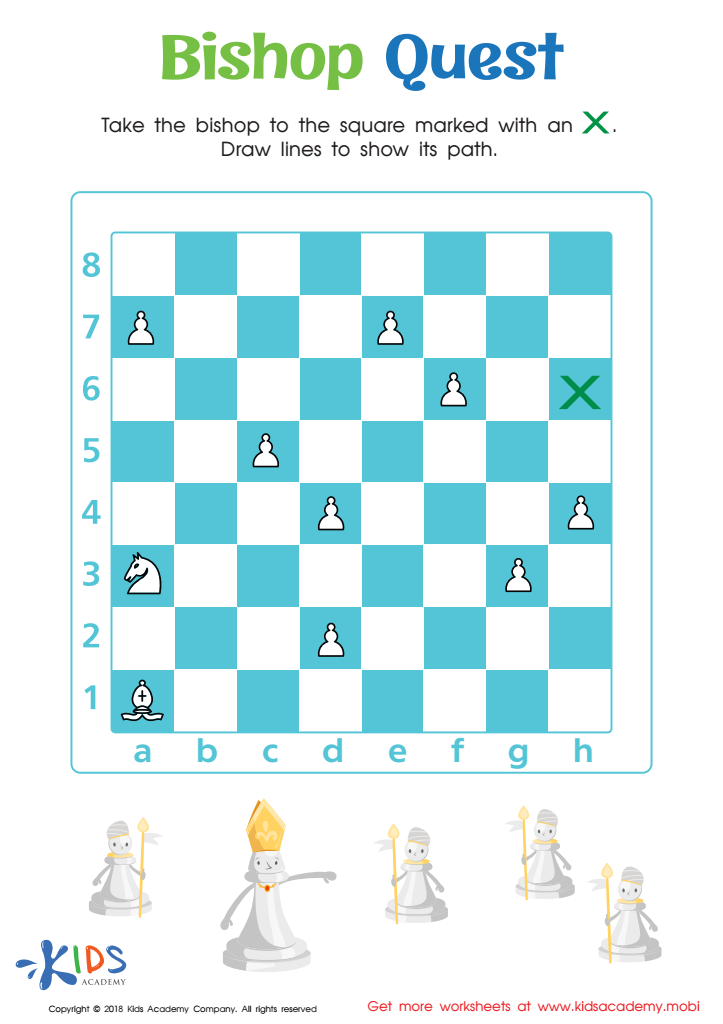

Bishop Quest Worksheet
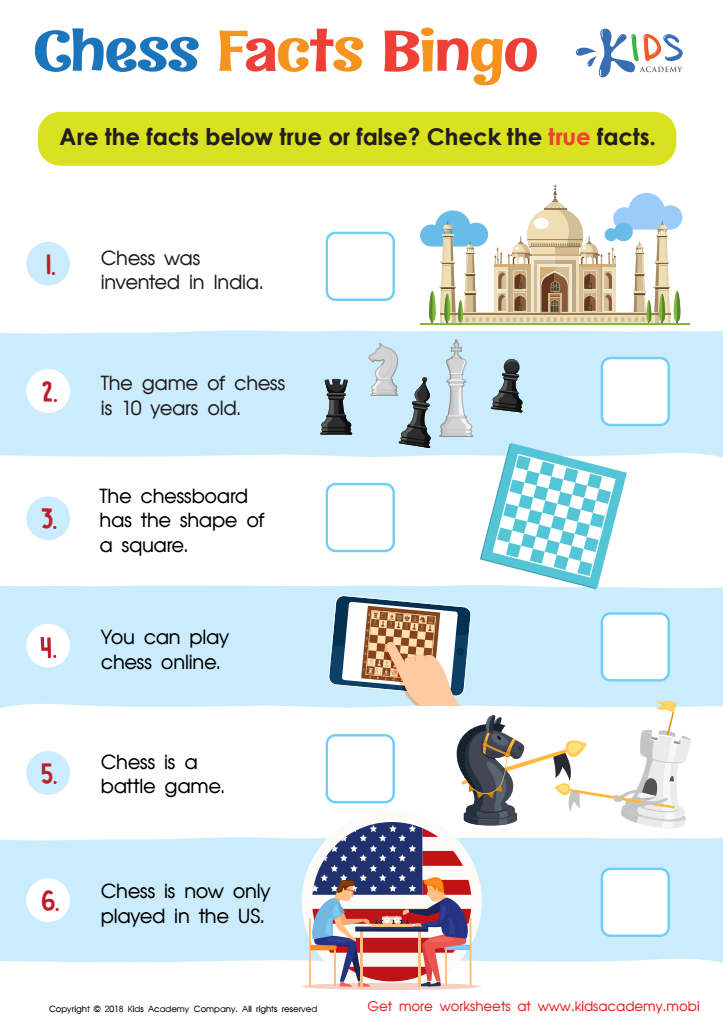

Chess Facts Bingo Worksheet
Chess offers an array of cognitive, social, and emotional benefits, making it a valuable activity for children aged 6-9. Parents and teachers should care about fostering chess knowledge for several reasons.
Firstly, chess enhances critical thinking and problem-solving skills. As children learn to anticipate their opponent's moves, they engage in strategic planning, which strengthens their analytical abilities. This mental exercise translates into improved performance in subjects like math and science.
Secondly, chess teaches valuable life skills such as patience, discipline, and perseverance. The game requires players to deliberate before making a move, promoting thoughtful decision-making. When children encounter challenges on the chessboard, they learn to cope with setbacks and develop resilience—an important trait for lifelong learning.
Additionally, chess encourages social interaction and cooperation. Through lessons, tournaments, or casual games, children interact with diverse peers, fostering communication and sportsmanship.
Moreover, introducing chess at a young age can ignite a passion for intellectual pursuits and hobbies, inspiring children to cultivate lifelong interests.
By investing time in teaching chess, parents and teachers not only equip children for academic success but also impart crucial skills for navigating life's challenges with confidence and insight.
 Assign to My Students
Assign to My Students










